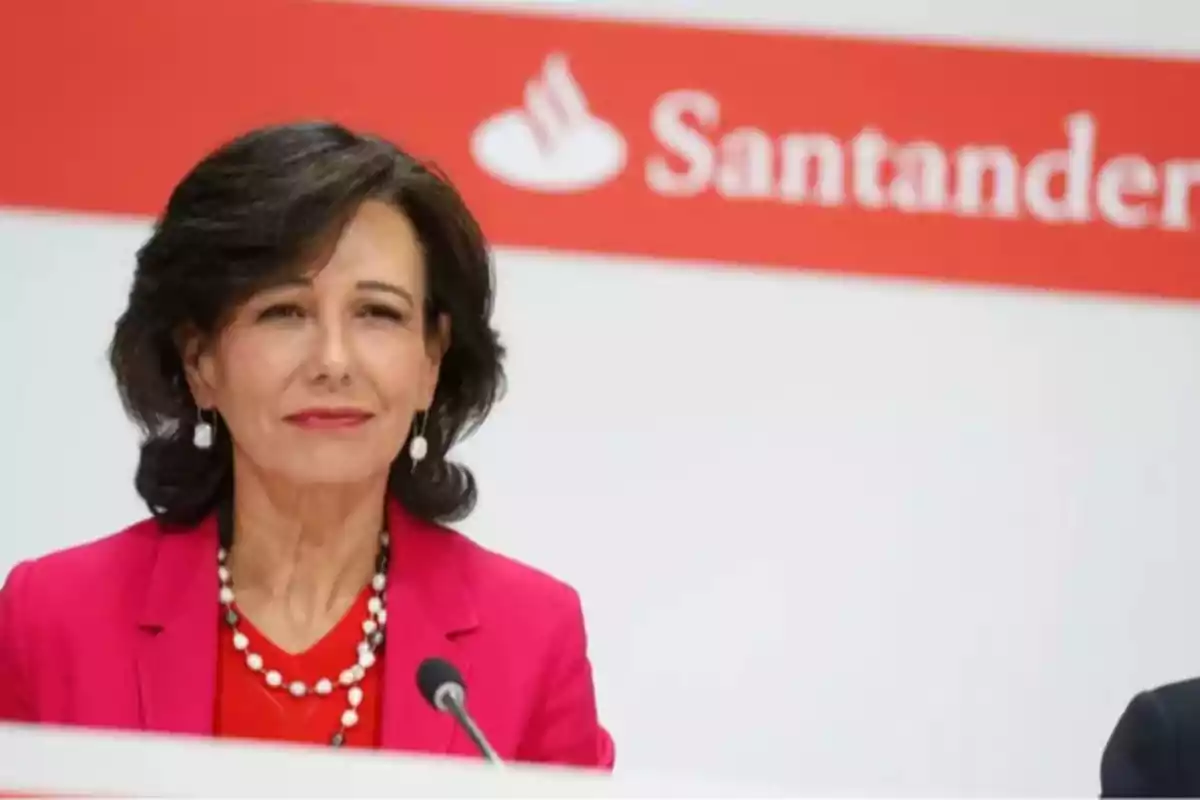
Ana Botín, president of Banco Santander, praised the Argentine government's management.
He stated during an event in New York: 'Today Argentina is in a position to be one of the engines of Latin America'
During the XXI Santander Latin America Meeting, held in New York, the chairwoman of the Board of Directors of Banco Santander, Ana Botín, dedicated a central part of her speech to the situation in Argentina. "Today Argentina is in a position to be one of the engines of Latin America," she stated with conviction, making a notable impact on an audience composed of bankers, investors, and entrepreneurs from across the region.
The executive of the largest Spanish-origin bank contextualized her assessment within a framework of global geopolitical and economic reconfiguration. "This is something difficult to believe we could say, but it is so," she added emphatically. Her words reflect an unusual confidence, especially when compared to the image the country projected until the end of 2023, before the arrival of the new government.
In her presentation, Botín stated that 2025 will be a turning point for Argentina, anticipating a growth of 5%. She linked this projection to three essential pillars: the opening of the foreign exchange market, fiscal order, and the sustained decrease in inflation. "The opening of the FX is very important, which we follow daily," she indicated, hinting at the meticulous monitoring the entity does of the new economic direction.
As an anecdote and with humor, she commented: "The question I always ask the sky is how the dollar will end up at the end of the year." This lighthearted observation did not hide, however, a clear message: markets trust more when they perceive rationality and consistency in public policies.
Botín also emphasized the recovery of institutional credibility. "The fiscal balance and inflation are continuously going down. This is super important," she highlighted. "In 15 months we are already seeing a country that will grow. This goes beyond what many people expected."
In conversation, the banker recalled the years of crisis at the beginning of the 21st century. "I spent 10 years without being able to go to Argentina," she confessed. Today, her perspective is diametrically opposed. "We believe in what has been done in the last 15 months. The Government has always been ahead of the market and that is very positive. We have no reason not to be optimistic," she assured.
She emphasized Santander's commitment to the country: "We are optimistic about Argentina as we always have been and we are committed to Argentina. We invest in Argentina."
One of the central aspects she highlighted was the now real possibility of distributing dividends. "Of course, we want to be able to pay dividends because it is key to boosting investment," she remarked. She celebrated the decision of the Central Bank on March 13, which allows distributing up to 60% of the dividends in local currency, in 10 monthly installments starting from June 30, 2025.
"The number one pending issue that has already been fulfilled was that when one invests in a country, they can receive dividends. And we are very grateful to the government for taking this step," she emphasized. For Botín, this measure directly improves the "cost of equity," that is, the cost of doing business in the country. "Lowering that cost is essential," she added.
Botín warned about the negative impact of excessive regulation and taxes in Latin America."Last year we paid 15 billion in all types of taxes worldwide. The effective corporate tax rate is thirty-something percent," she exemplified. She emphasized: "The Latin American financial system suffers penalties that must be corrected."
Regarding the regional scenario, she was optimistic: "Relative to the rest of the world, Latin America will grow more or be less affected... in relative terms, it will suffer less from this slowdown." She attributed this advantage to structural improvements and the relevance of strategic resources. "Three countries concentrate almost 60% of the world's lithium reserves, and Argentina is one of them," she remarked.
She also highlighted that the process of economic liberalization is creating a favorable environment for investors. "The fact that we can not only generate profits but also remunerate shareholders, which we had not been able to do for many years, will encourage more investment in Argentina."
Towards the end of her speech, Ana Botín stated that the underlying challenge remains the sustained implementation of structural reforms. "These reforms must be made before the continent ages," she affirmed, pointing out the need to invest in human capital in the face of an era dominated by artificial intelligence and deglobalization.
"When governments are so indebted, it must be the private sector that invests," she stated, and reiterated the need to reduce the cost of capital. "We must continue improving those excessive regulation costs," she added. She even compared the Argentine situation with the European one: "In Europe, we have it very clear. The good news is that Brussels knows it and will take measures."
More posts: